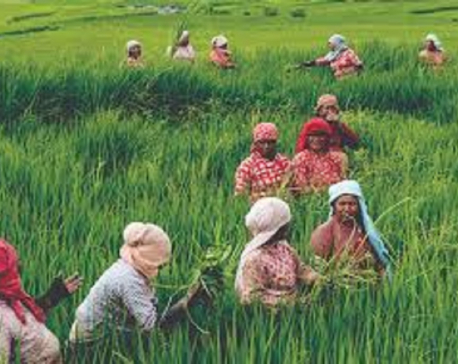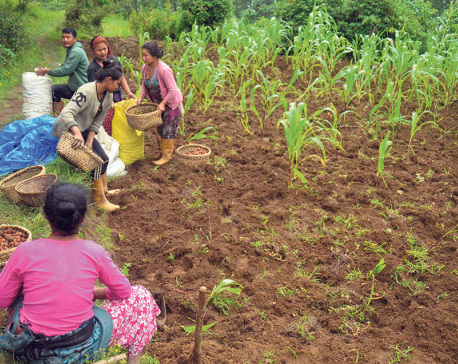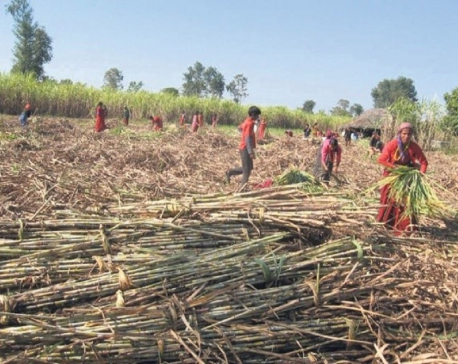
OR
Five policies for agriculture
June 6, 2020 15:30 pm
Agriculture in Nepal has slow growth over a protracted period despite a number of policies and strategic approaches being followed in the past. The Agriculture Perspective Plan (APP), unveiled in 1995 with a 20‐year vision, adopted a Green Revolution‐type approach based on massive investments on key inputs such as irrigation, fertilizers and rural roads to be focused on high potential areas. Based on it, the Government of Nepal (GoN) has formulated several broader policy frameworks since then. Of these, Agriculture Development Strategy (ADS) and National Agriculture Policy 2061 (NAP 2004) remain main policy documents to date. All these policies are judged to be sound in design but have suffered greatly in implementation. In many cases, they lacked the supporting legislation and resources for implementation.
Let there be food
May 3, 2020 16:03 pm
Although the COVID-2019 epidemic is primarily a public health crisis, its impact on other sectors including the agriculture supply chain has started to be visible. The outbreak has already caused significant economic disruption around the world and is likely to continue to do so for some length of time. Regarding agriculture, it has an effect on both the supply-side and the demand side. Restrictions on the movement of goods and people have significant socio-economic repercussions on people's livelihoods. They often lead to disruption of market chains and trade of agricultural products, with significant potential impacts on the populations that depend on them for their livelihoods and their food and nutrition security. Supply chain management (SCM) in agriculture implies managing the relationships between the businesses responsible for the efficient production and supply of products from the farm level to the consumers.
Help the farmers or brace for massive protests
May 2, 2020 13:19 pm
The coronavirus pandemic has exposed our vulnerabilities. During these difficult times, we have been threatened in many ways. One mighty question that many people have on their mind is: Who are the most resilient people? The answer is obviously farmers in rural areas. Their life is always in a prescribed format of social distancing, not by any force of law, but by their lifestyle. Unlike the households in cities and urban centers, settlements in villages are scattered.
Trending
Just In
- 14 percent health equipment in Nepal remains unused, reveals a survey
- Four drivers of Kathmandu metropolis released after Mayor Balen's warning
- Former King Shah visits Patan Durbar Square (In Pictures)
- Iran declares five days of mourning for president
- Joint meeting of NC CWC, PP to be held on Wednesday to discuss contemporary political development
- Nepal’s foreign trade declined around Rs 37 billion in the first 10 months of current FY
- Light rainfall likely in Koshi, Madhesh and Lumbini provinces
- British PM Rishi Sunak praises Nepali community and British Gurkhas













